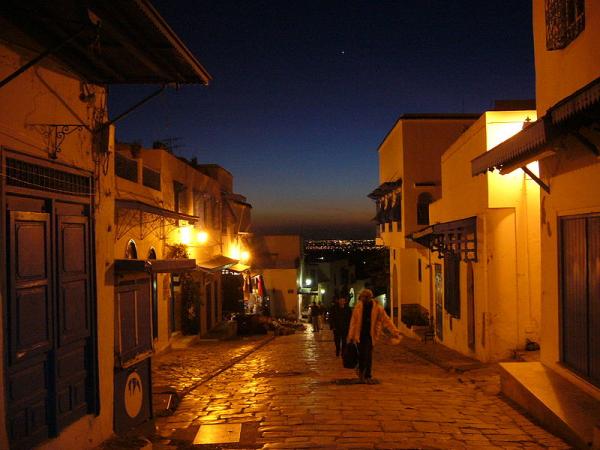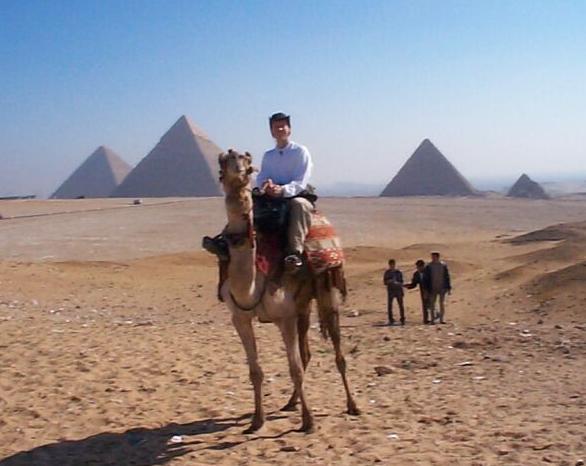Wavepacket Blog displaying only one specific post |
| 2011 | |
| January | |
| Thu Jan 27 22:35:37 2011 Upheavals in the Middle East |
|
| >> links >> | |
| Thu Jan 27 22:35:37 2011 Upheavals in the Middle East How will this all work out? |
|||||||||
| One of my favorite trips ever was a
2001 trip to Tunisia, almost ten years ago exactly. At the time, it struck me as almost the perfect
country: a perfect climate, beautiful seashores, a range of terrain including mountains and
deserts, great people, great food, and fun driving.
And there were amazing Roman ruins scattered throughout the country. Most of all, I was impressed by the people. I was a westerner travelling alone in a predominantly Muslim country (this was pre-9/11), but I really never felt uncomfortable, especially once I was out of the grittier parts of Tunis. The countryside was beautiful, and the people were generous and friendly. It reminded me more than any other trip how alike people really are, no matter the country. Now, of course, Tunisia is in the news due to the recent riots and general unrest that caused the downfall of the regime and the flight of their President. Even in 2001, I noticed that Ben Ali wasn't much liked:
And I also noticed the unemployment and dissatisfaction, which a fellow traveler Smith and I commented on:
Well, it looks like people stopped drinking and smoking. And now the Tunisian disturbance has spread to Egypt and Yemen at least. How far will this go, and where will it end? Hopefully this will end up with all of the repressive governments of the Middle East being replaced by more representative governments that respect individual rights and freedom of expression. But I don't think it will. Instead, I think only a few countries--the poorest ones--will see revolts. Egypt, Yemen, and Tunisia are obvious candidates. Countries with a lot of oil--and oil money--likely won't see these sorts of uprisings, since they have more content citizens, and larger security forces. So the richer repressive governments will be fine. Even in the countries that do revolt, will democracy take root? Will we see a flourishing of individual rights and freedoms in the Middle East? Again, I hope so, but I wouldn't bet on it. The main reason I don't think so is that these riots are creating power vacuums. There is no credible democratic opposition in Tunisia, Yemen, or Egypt. Instead, various fringe power groups will try to take control. Even worse, Western countries have a poor image in these countries, and many of the hated regimes had at various points attempted to Westernize. So a shift to supposedly "western" values such as individual rights or democracy could easily be twisted by demagogues to appear as non-patriotic! This problem of a power vacuum was first really studied during the French Revolution. In fact, the French Revolution was studied and used as a template for action by the Bolsheviks when they seized power after the Russian Revolution of 1917. The result of the French Revolution? The Reign of Terror, culminating in Bonaparte's dictatorship. It took many years--a generation--before the Republic gained its footing. The result of the Russian Revolution? The Red Terror and Communism, which didn't really fall until 1990. In fact, there are very few examples of revolutions leading to democracies that champion individual rights, and they all seemed to involve politically powerful or influential pro-democatric factions involved from the start. So I am not optimistic about prospects for democracy and individual freedoms in the Middle East in the near term. There is one chief learning through all of this that I hope pro-democracy countries take note of. That is the role of the Internet in the upheavals. It was the ability of people to communicate events and plan across entire countries at once that made the uprisings so effective and total. I've had this crazy idea for a while, so I'll mention it now: pro-democracy countries should fund smartphone networks that cover repressive autocracies. We (the world's pro-freedom countries) should build out the networks, and provide hardware, for citizens of countries who are denied freedom of speech. We could even give away the smartphones to citizens for free, through airdrops or other delivery methods. We'd want to ensure that the majority of the smart phones reached real citizens, and not the regime. And our control of the network would mean that citizens could communicate with each other and the rest of the world without the regime intercepting, blocking, or listening to the messages. This would cost billions, but would be far cheaper than troops on the ground, and maybe more effective. It is also a beautiful asymmetric attack. If a repressive regime retaliated by building a free smart phone network for us, I think we would welcome it. Tell your congressman about this idea. We should give away smart phones and operate networks that cover the world's repressive regimes! But in the meantime, pray for the people of the countries that are rioting, and hope they get better governments than what they have now. I think the best action we as outsiders can take is to ensure that all of those involved are able to communicate with each other and the outside world. Comments |
Related: economics geopolitics predictions Unrelated: books energy environment lists mathematics science |
||||||||
| Links: |  |
Blog Directory | Blog Blog | Technorati Profile | Strange Attractor |

